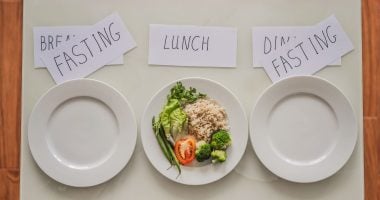Very low calorie diets and diabetes have recently hit the headlines since a study by Newcastle University found that a very low calorie diet was effective in reversing the symptoms of type 2 diabetes
- Read more: 600 calorie diet
Because they involve a large calorie deficit, very low calorie diets should not be undertaken without medical supervision.
What is a very low calorie diet?
Very low calorie diets are defined as those with a calorie intake of 1,000 calories or less.
The recommended energy intake for adults is 2,000 calories for women and 2,500 calories for men.
What food is eaten in a VLCD?
A very low calorie diet will typically involve replacing conventional foods with diet milkshakes, soups or bars.
How long should I follow a very low calorie diet for?
It is not recommended that you maintain a very low calorie diet for longer than 12 weeks as extreme calorie reduction can lead to nutrition deficiencies and could even lead to heart problems.
Who are very low calorie diets suitable for?
Very low calorie diets are only suitable for people who are significantly overweight and have struggled to lose weight despite eating healthily.
Very low calorie diets should not be followed by children, or pregnant or breastfeeding mothers.
Is the diet safe to follow?
Very low calorie diets are regarded as extreme diets and anyone interested in trying the diet should consult their doctor or specialist who can assess its suitability for you.
One issue with very low calorie diets is ensuring you get enough essential vitamins A dietitian can help you to ensure your nutritional needs are best met whilst following the diet.
Are there any side effects of the diet?
Side effects that may be experienced include:
- Lethargy
- Hunger
- Diarrhoea
- Constipation
- Headaches
- Nausea
You may find that some of the symptoms will subside after the first few days of the diet.
Your health team may ask you to keep a log of your weight and to note any side effects you feel.
These are usually minor, and can include:
- Fatigue
- Fiarrhoea
- Constipation
- Nausea







